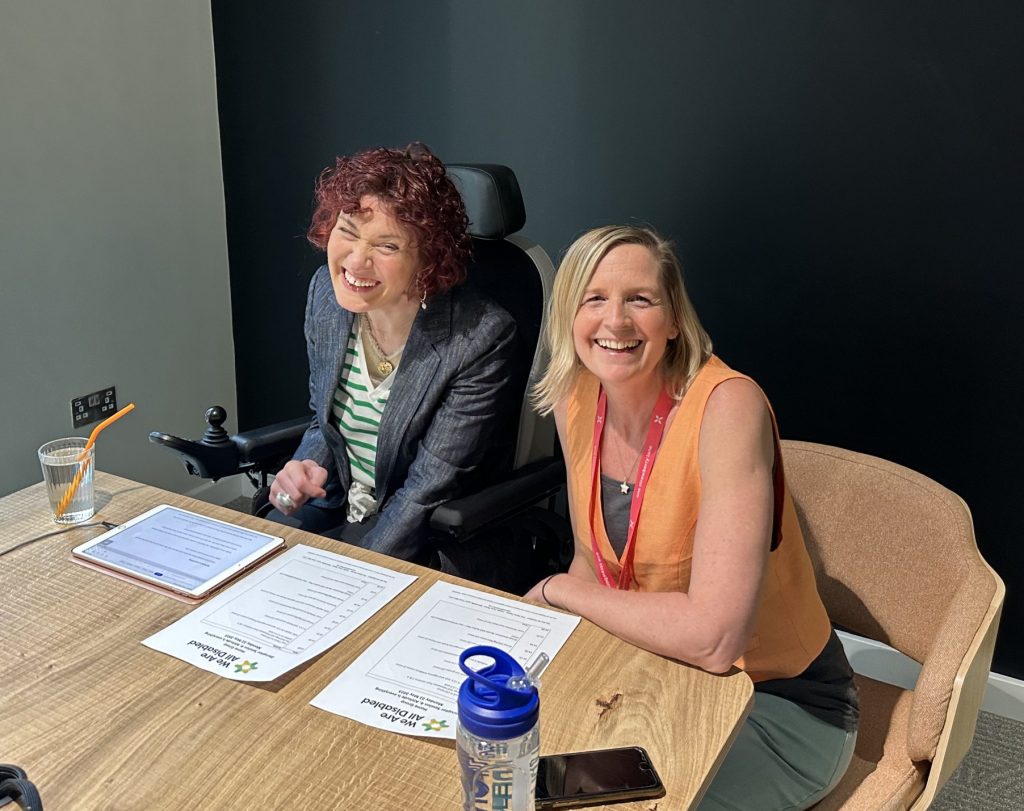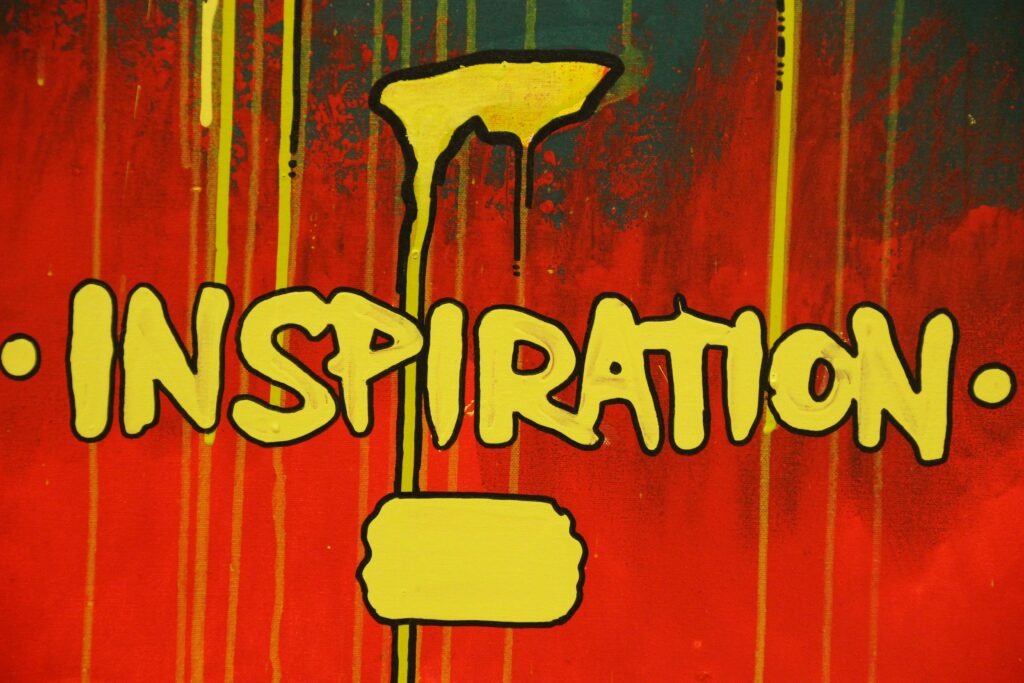Last month I was delighted to be invited to speak at the Institute of Government Public Policy’s national conference; ‘Disability Inclusion in the Workplace’.
It was a fantastic conference where we heard from people with a wide range of disciplines. Amongst the speakers was Sarah Barker, Deputy Director of the Cabinet Office’s Disability Unit, who gave an insightful address about removing barriers and increasing participation by developing a national strategy for disabled people.
She touched on how building on evidence and insights from the experience of disabled people to put fairness at the heart of government work and level up opportunities for disabled people. It’s critical that real life experiences of disabled people are used to inform government policy and this very much resonates with my PhD research where I used the lived experiences of disabled people to create a future platform for their voices to be heard.
Dr Ruth Owen OBE, CEO of Leonard Cheshire, spoke about improving access to the labour market by providing flexible working hours for disabled people and giving access to adjustments and assistive technology. This work is incredibly valuable in providing disabled people with flexible work opportunities, enabling them to fulfil their potential as individuals in a work place setting.
For me this is something that I wished I had as a young disabled person but now I am fortunate that I am able to use the advancements in technology to develop my own business and the freedom of being able to connect, meet and work collaboratively with a range of people online.
I really enjoyed all of the speeches but one of my favourite keynote addresses was Brian Lutchmiah’s ‘Navigating the Labyrinthian Path to Employment’. I think I found it particularly interesting because having been a student myself, I could empathise with the challenges disabled students face and I was very pleased to hear about the support that they receive nowadays.
I was especially keen to hear about reducing the associated barriers for disabled students in creating a seamless transition into employment. Disabled students being nurtured throughout education and into employment to develop a national workforce that is representative of our society struck a significant chord with me. Having graduated in the early 2000s , I didn’t receive much support at university and I definitely didn’t receive any support to transition into the workplace so it was heartening to hear that so much progress has been made in this area.
Another aspect of the conference that I found particularly interesting was that the majority of speakers focused on the Social model of disability. New laws and government policies such as the Equality Act and the Disability Confident Scheme have had a huge impact on the lives of disabled people.
The Equality Act 2010 sought to tackle discrimination and to improve attitudes towards disability (Government Equalities Office, 2010). Disability Confident is a movement to encourage employers to think differently about disability and take action to improve how they recruit, retain and develop disabled people.
I believe it is so important to speak about how hard these laws and policies were fought for and how instrumental they have been to the emancipation of disabled people. For example the work of Judy Heumann, the American disability activist who is recognised internationally for her leadership in the disabled community.
I was born in the late 1970s at a time when there was a tremendous civil rights movement towards advocacy for disabled people. Here in the UK, Paul Hunt, Vic Finkelstein and Ken Davies established the Union of Physically Impaired Against Segregation (UPIAS). The Marxist-inspired UPIAS redefined disability as a result of the environmental factors that were imposed on individuals with impairments and segregated them accordingly.
The policy of the UPIAS was Fundamental Principles of Disability, which challenged the key organisations supporting disabled people. Furthermore, it challenged those that failed to address the exclusion of disabled people from social and economic activities (UPIAS, 1976). I am truly grateful for all of this invaluable work, without which I may not have been able to achieve what I have today.
However, I believe it is time to push forward and move things on once again. The Covid pandemic has given us the opportunity to view disability in a different way. Nowadays we recognise that almost everyone has something that potentially limits their ability to fully participate in society, particularly in these current times. Disability has started to be acknowledged at a wider level in all its forms and conversations are opening up, both in terms of physical disabilities and mental health.
I believe that lockdown and social distancing restrictions has given all of us, both disabled and non-disabled, the opportunity to live and view life in a different way and therefore has the potential to be a great leveller. This is why I am keen to work with the Affirmative model of disability as a practical tool because it addresses the meaning of ‘disability’, as well as disabled people validating themselves and their identities.
In my speech at the IGPP conference I focused on the workplace being the key to inclusion and the importance of having open and honest conversations in order to facilitate empathy and understanding.
Providing the opportunity for employees to develop effective communication skills is a really important way to ensure that everyone within an organisation can have their voices heard. This in turn makes it easier to unite together, embrace diversity and become more inclusive within our workplaces and communities.
Disabled people were hidden away and excluded from society for too long. Now that these long-held prejudices are finally being challenged, I believe that it is more important than ever for people to connect with disabled people so knowledge about disability is promoted. This will reduce prejudices and discrimination and help bridge the disability perception gap in the workplace. Dixon et al., (2018) revealed that those who had contact with a disabled person have more empathy towards disability.
I strongly believe the more we open ourselves up to difficult conversations, learn to truly listen to each other and try to understand other people’s points of view the more open and accepting society will become.
I was honoured to have the opportunity to take part in the IGPP conference and I’ve received some amazing positive feedback. I was the only speaker to focus on communication as a key influence for inclusion and positive change which hopefully helped to add a new perspective and perhaps challenge the perceptions of those who participated in the conference.
I hope that the work I am doing both personally and through We Are All Disabled will not only promote disability inclusion in the workplace but also influence governance and public policy and how they impact disabled people in the future.
References:
Dixon, S., Smith, C. & Touchet, A. (2018) The Disability Perception Gap. United Kingdom: Scope, p. 29.
Government Equalities Office (2010) Government Equalities Office – GOV.UK [Online]. Available from: <https://www.gov.uk/government/organisations/government- equalities-office> [Accessed 14 May 2018].
UPIAS (1976) Union of the Physically Impaired Against Segregation. Fundamental Principles of Disability. London: UPIAS.









